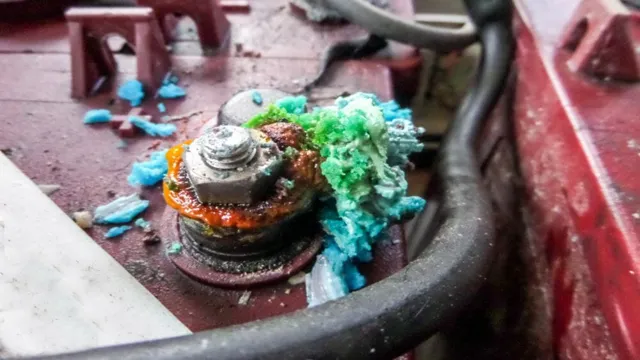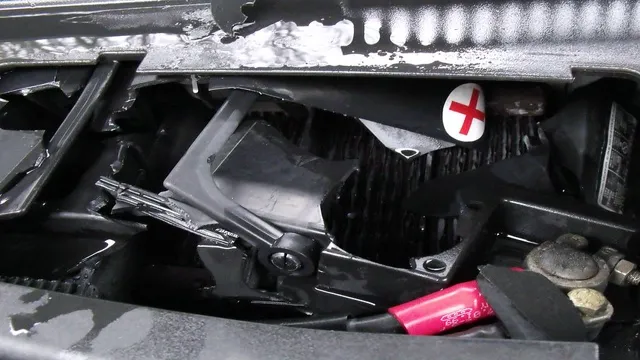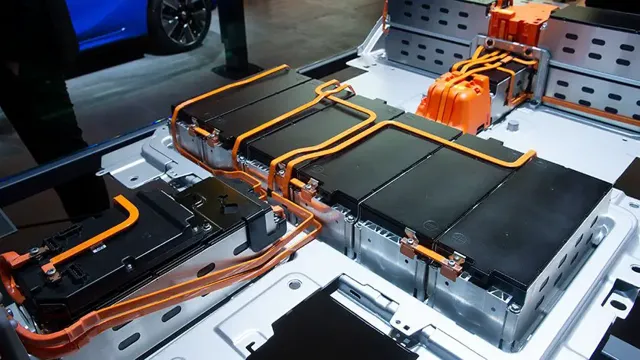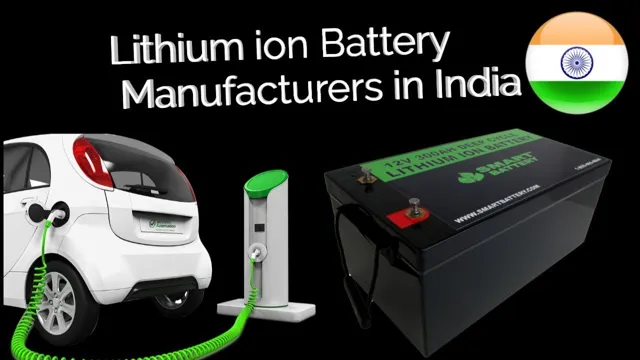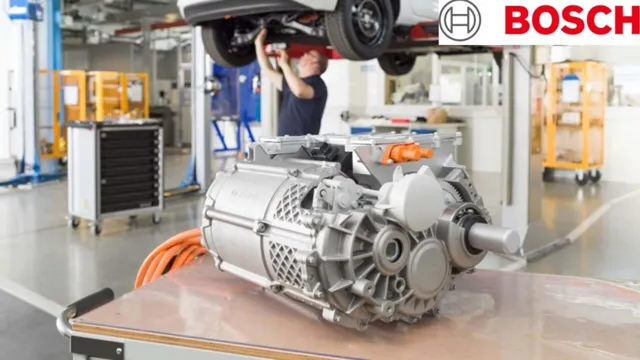Are You Risking Your Electrical Components with an Old Car Battery? Uncovering the Truth
Have you ever found an old car battery lying around and wondered if it’s still usable? Or worse, have you used an old car battery in your vehicle without knowing the potential risks? The truth is, old car batteries can indeed cause damage to electrical components in your vehicle. As batteries age, their ability to hold a charge decreases, and they become more prone to leaks and other potentially dangerous issues. In this blog post, we’ll take a closer look at the potential dangers of using old car batteries and why it’s essential to ensure that your vehicle’s electrical components are protected.
How old is too old?
If you’re wondering how old is too old for a car battery, the answer really depends on a number of factors. Generally speaking, most car batteries will last between three to five years under normal conditions. However, as a battery ages, it may begin to lose its ability to hold a charge effectively.
In some cases, an old battery may even damage other electrical components in your car. For example, if the battery is not supplying enough power to the starter, it may cause other systems to malfunction, such as the lights or the computer. It’s always a good idea to have your car battery checked regularly to ensure it’s in good working order.
If your battery is more than five years old, you may want to consider replacing it to prevent any potential damage to your car’s electrical system. Overall, an old car battery can definitely cause issues with your car’s electrical components if it’s not functioning properly. So it’s important to keep an eye on your battery’s age and performance to avoid any potential problems down the road.
Factors that affect battery lifespan
Battery lifespan is a crucial factor to consider when it comes to your devices. While batteries do not last forever, certain factors can affect their lifespan. One of the primary factors is age.
Over time, batteries naturally degrade, and their capacity decreases. Generally, lithium-ion batteries, which are commonly used in smartphones and laptops, can last for around 300 to 500 charging cycles, equivalent to about two to three years of usage. Beyond this point, the battery’s performance will start to decline, and it may often require more frequent charging.
However, it’s essential to note that this can vary depending on your usage habits, storage conditions, and the quality of the battery. If you notice your device’s battery life is getting shorter, it could be an indication that it’s time to consider replacing it.
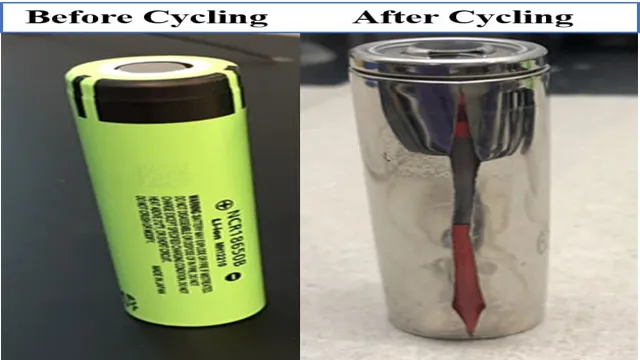
Warning signs your battery is dying
As your car ages, so does its battery. It’s important to pay attention to warning signs that your battery is dying so you don’t find yourself stranded on the side of the road. One question many people have is, “How old is too old?” Generally, most car batteries last between three and five years.
If your battery is nearing the end of its lifespan, you may notice that your car is slow to start, lights appear dimmer than usual, or the check engine light turns on. You might also experience difficulty with electronics in your car, such as power windows or the radio. If you’re unsure about the age of your battery or if you suspect that it’s beginning to fail, it’s important to have it checked out by a professional mechanic to avoid getting stuck with a dead battery unexpectedly.
What are the risks to electrical components?
When it comes to car batteries, an older battery can indeed pose a risk to your vehicle’s electrical components. As batteries age, they can lose their ability to hold a charge and may begin to leak acid. This acid can corrode the battery cables and surrounding metal, causing damage to nearby electrical components.
Additionally, an old battery may not provide enough power to properly run all of the electrical systems in your vehicle. This can cause issues such as dimming headlights, slow power windows, and difficulty starting the engine. It’s important to regularly check your car battery’s age and replace it before it starts causing problems for other parts of your vehicle.
Don’t wait until it’s too late, as the damage caused by an old battery can be costly to repair.
Voltage drop and power fluctuations
Voltage drop and power fluctuations can be persistent issues in electrical systems, with potentially significant implications for the reliability and safety of components. When voltage drops below the recommended level, it can cause system disruptions and malfunctions that can damage critical equipment or even lead to system-wide failures. This can be especially problematic for devices that require precise voltage levels to function correctly, such as sensors, actuator controls, and other sensitive electronics.
Power fluctuations, meanwhile, can cause intermittent or chronic damage to electrical components, reducing their lifespan and leading to increased downtime and maintenance costs. To mitigate these risks, it is crucial to maintain a stable, consistent power supply and to take appropriate measures to identify and address any voltage drop or power fluctuation issues as early as possible. By doing so, you can help ensure that your electrical systems operate smoothly and reliably, even in challenging environments.
Short circuits and damaged wiring
Short circuits and damaged wiring can be some of the most dangerous risks to electrical components. Short circuits occur when the electric current takes an unintended path through an electrical system due to a damaged wire or faulty connection. This can cause the components to overheat and potentially start a fire.
Damaged wiring, on the other hand, can lead to electrical shocks and electrocution. It’s important to recognize the signs of short circuits and damaged wiring, such as flickering lights or burning smells, and take immediate action to prevent any accidents. Regular inspections and maintenance of your electrical system can also help identify any potential issues and prevent them from causing harm.
Remember, electrical safety should always be a top priority in any home or workplace.
Overheating and electrical fires
When it comes to electrical components, overheating is a significant risk factor that can lead to electrical fires. The increased temperature can cause the internal components of appliances and devices to fail, or short circuit, causing a fire to start. Overheating can happen due to a few reasons such as, poor ventilation, an overloaded circuit, or just pushing devices beyond their limits.
Sometimes, even the tiniest of components, such as a spark or a faulty wire, can cause a rapid escalation of heat and lead to an electrical fire. That’s why it’s crucial to recognize the signs of overheating and take preventative measures to avoid these catastrophic situations from occurring. It’s important for everyone to educate themselves on this issue and follow proper safety recommendations, such as ensuring adequate ventilation and not overloading circuits.
By taking these precautions, we can minimize the risk of overheating and prevent electrical fires from starting.
How to prevent damage to your car’s electrical system
Yes, an old car battery can damage your car’s electrical components. This is because an old battery can no longer hold its charge, which can cause voltage fluctuations that can damage your car’s electrical system. To prevent this, it’s important to regularly check your car battery’s health and replace it when necessary.
Additionally, it’s important to properly maintain your car’s electrical system by keeping all connections clean and tight. It’s also a good idea to avoid overloading your car’s electrical system by not using too many power-hungry accessories at once. By taking these preventative measures, you can help ensure that your car’s electrical system remains in good condition and that you avoid the costly repairs that can come with damaged electrical components.
Regular battery maintenance and replacement
Battery maintenance is a crucial aspect of car maintenance that helps prevent damage to your vehicle’s electrical system. Neglecting your car battery can lead to various problems such as dead batteries, corrosion, and even alternator failure. To avoid such issues, it’s essential to regularly check your battery’s condition and perform maintenance tasks such as cleaning the terminals and checking the voltage levels.
You can also extend your battery life by turning off all electrical accessories before turning off the car’s engine. Another critical factor is to drive your car regularly, as leaving it idle for extended periods can cause the battery to drain and reduce its lifespan. It’s also vital to replace your car battery as per the manufacturer’s recommended schedule, as an old or damaged battery can cause problems in other parts of your car’s electrical system.
By following these tips, you can ensure that your car’s electrical system remains in top condition, providing a hassle-free driving experience.
Avoiding extreme temperatures and humidity
When it comes to preventing damage to your car’s electrical system, extreme temperatures and humidity can be big culprits. High temperatures can cause your battery to overheat, shortening its lifespan and potentially causing it to fail altogether. Moreover, extreme cold can also cause your battery to discharge more quickly, again leading you to potential trouble on the road.
Beyond the battery, high humidity can cause issues with corrosion on electrical components in your car. To prevent these issues, it is important to keep your car in a moderate environment as much as possible. Store it in a cool, dry place when not in use, and avoid exposing it to extreme temperatures or high humidity for long periods of time.
By taking these simple steps, you can help protect your car’s electrical system, ensuring it stays in good working order in the long run.
Conclusion: Don’t risk it!
In conclusion, if you’re considering using an old car battery to save some money, just remember that sometimes being penny wise can end up being pound foolish. While it may seem like a good idea on the surface, an old battery can potentially cause damage to your vehicle’s electrical components, leading to costly repairs down the road. So, unless you’re a fan of playing Russian roulette with your car’s electronics, it’s best to invest in a new battery and avoid any potential shocks to your wallet.
“
FAQs
Can an old car battery damage electrical components?
Yes, an old car battery can damage electrical components due to its decreased capacity to hold a charge and increased risk of leaking acid.
How can I tell if my car battery is too old?
There are several signs that indicate an old car battery, including slow engine cranking, dimming headlights, and the need for frequent jump-starts.
Is it safe to continue using an old car battery?
It is not recommended to continue using an old car battery, as it can lead to potential safety hazards and damage to electrical components.
What is the typical lifespan of a car battery?
The typical lifespan of a car battery is 3-5 years, although this can vary based on factors such as usage patterns and environmental conditions. It is recommended to replace your car battery every 3-4 years to prevent potential issues.
